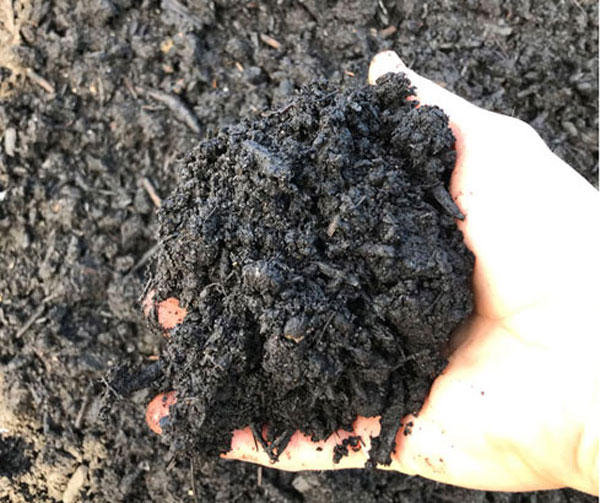Leaf Compost

Leaves are a natural soil builder, Leaf Compost OR Leaf mold is made by decomposing the organic waste mainly the dried leaves and kitchen waste into humus. Leaf compost is considered far superior to compost as a soil conditioner, it nourishes plants, preserves moisture in the soil, helps spread fertilizer, facilitates weeding, attracts worms and helps prevent diseases. Mature compost is a stable material produced by the decomposition of organic wastes i.e. leaves, vegetables, fruit, plants, weeds, stems, twigs, bugs, animals, microbes, etc.
Leaf compost is an excellent soil enhancer for most soil types. Most leaves are rich in potassium and micronutrients. These nutrients can be returned to the soil and eventually your plants if the leaves are used as compost.
Leaf Compost contains large quantities of beneficial microbes useful in fighting off diseases and some pests. The microbes also help make nutrients available to your plants. Additionally, leaves used as mulch or compost provide habitat for helpful macro-organisms such as earthworms and ground beetles. it contains some trace elements and also both potash and phosphorus, which is great for roots.
Advantages of using Leaf Compost-:
- It reduces summer soil temperatures by shading roots and holding water longer in dry soils
- It helps to reduce the density of clayey (heavy) soils by adding organic matter that increases air space and drainage.
- It buffers soil pH through helping to stabilize and regulate at a more neutral level.
- It improves soil structure, reduces soil compaction & crusting
- It increases the ease of cultivation, improves water filtration through the soil profile
- It increases microbial & earthworm populations suppresses plant diseases
- It improves nutrient holding capacity thus reduces fertilizer requirements.
- It improves root growth, conserves water, prevents erosion of sloping soils, binds heavy metals in contaminated soils, degrades many pesticides and absorbs odors
- It encourages vigorous root growth allowing more effective use of nutrients by plants through the slow release of nutrients as the organic matter continues to decompose.
- It increases cation exchange capacity (CEC) by adding organic matter to your soil that acts as ion transfer stations.
- It degrades volatile organic compounds and diverts organics from landfills
It sequesters contaminants in water and soil
